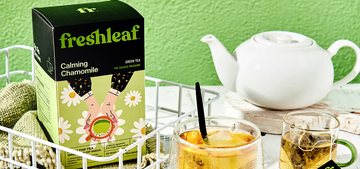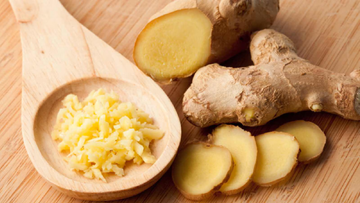Introduction
You must know adrak. I mean, who doesn’t? It’s the most common thing used in the kitchen after potatoes, and unlike potatoes, it actually has a lot of benefits. Whether you’re looking to ease nausea or relieve pain, this ingredient used as ginger tea, or water will surely help. Now, if you don’t know what ginger is or what it looks like, well, just go see yourself in the mirror, that is what ginger looks like. No, no, we’re just joking, we would never say something like that to you, haha (or can we?). Now if you’re looking for the benefits of ginger, uses of ginger, and side effects of ginger, this blog will talk in detail about all that and even about the advantages of drinking ginger tea, the advantages of eating raw ginger, and ginger medicinal uses!
So, buckle up, cause I’m about to take you on a ride that you never expected, well, did you ever think someone would call out that you look like ginger, and that too digitally on a blog? And did you ever think that you’d have to read it whole because you have some doubts regarding ginger that you need to clear up? Well, no worries, let’s get started!
What is Ginger?
Ginger is basically a flowering tropical plant that grows in China, India, Africa, the Caribbean, and other warm climates. The root of the ginger plant is well-known as a spice and flavoring. It’s been a traditional remedy in many cultures for thousands of years!
Now, ginger could mean many things to different people. To a landscaper, it’s a desirable blooming plant. To a child, it’s the spice in gingerbread. Sushi lovers use pickled ginger as a palate cleanser. But many people who love ginger in its other forms have never had a cup of ginger tea. As raw, tea, or in water, ginger has several health benefits.
Let’s start with ginger tea, ginger tea is made by infusing dried or fresh ginger in hot water for a few minutes, allowing the oils of the ginger to infuse into the water before drinking. Ginger tea has a warming, slightly spicy taste. You can make your own by grating or slicing fresh ginger into a mug, or why go through all that hassle, just buy our turmeric ginger tea, full of all the ginger benefits, and even more! Don’t worry, later in the blog, we’ll talk about ginger tea in detail, we’re not leaving you hanging here.
Now, if we talk about ginger water, it is also a natural remedy used to help conditions like nausea and morning sickness. It’s got great benefits like it reduces inflammation, and contains antioxidants that fight ROS (reactive oxygen species), which causes stress and damages your cells.
Finally, if we talk about eating ginger raw, even that is a feat, I mean how are you gonna eat that thing raw, but if you do, the benefits are huge! It aids in weight loss, relieves acid reflux, and even reduces muscle pain and soreness.
Now, that you know in detail what ginger is, let’s talk about the benefits of ginger in different situations or in different methods of consumption.
Benefits of Ginger
Now, that we’re talking about the benefits of ginger, let’s start with the most basic and the most questionable method of consuming ginger. Let’s start by talking about the advantages of eating raw ginger.
Benefits of eating ginger
If you’ve ever dealt with heartburn, you know just how uncomfortable it can be. That burning sensation caused by stomach acid creeping up your food pipe can linger anywhere from a few minutes to hours. So, what do you do when medications just don’t cut it? The answer might be ginger. If you’re someone who experiences chronic acid reflux (twice or more per week), sipping on ginger water could help ease the discomfort.
Ginger works wonders by soothing the stomach and cutting down on excess acidity. To keep heartburn at bay, you can chew on some raw ginger or brew a warm cup of ginger tea with a hint of honey.
Now, let’s talk about those achy muscles after a tough workout. Muscle pain and soreness can throw off your productivity and make it hard to move around comfortably. Here’s where ginger steps in again! Research shows that consuming a small amount of raw or cooked ginger daily can help reduce muscle pain. In fact, the study found that people who included ginger in their diet recovered faster from soreness than those who didn’t. Sure, there may be other factors at play, but ginger clearly played a big part in speeding up recovery.
Ginger water benefits
Not a fan of hitting the gym or sticking to strict diets? Ginger might be your new best friend! Packed with compounds like gingerols and shogaols, ginger root can help kickstart your body’s biological processes. It’s known to boost metabolism and even lower cholesterol levels. You can get creative with how you consume it, add crushed ginger to your meals, chew it raw, or sip on ginger water first thing in the morning for a refreshing start.
Of course, while ginger can support weight loss, it’s no magic bullet. Pairing it with balanced nutrition and regular physical activity is still essential.
When it comes to heart health, ginger might have some impressive benefits. A 2019 review found that ginger could help reduce both systolic and diastolic blood pressure. That said, researchers agree that more studies are needed to better understand how ginger impacts blood pressure.
Ginger also shines as an antioxidant powerhouse. Antioxidants help combat reactive oxygen species (ROS), unstable molecules that can cause oxidative stress and damage your cells. While your body naturally produces ROS, habits like smoking, heavy drinking, or even ongoing stress can lead to excess. Foods and drinks rich in antioxidants, like ginger water, can help neutralize these effects. A 2022 review highlighted ginger’s antioxidant properties, suggesting it could serve as a complementary treatment for conditions such as diabetes, obesity, chronic kidney disease, and cardiovascular disease. It’s always a good idea to chat with your doctor about how ginger might benefit your specific health needs.
Finally, let’s talk about weight management. A 2019 review of 14 randomized controlled trials involving 473 participants revealed that ginger supplements could significantly reduce body weight and waist-to-hip ratio. However, it didn’t show much effect on body mass index (BMI). So, while ginger isn’t a one-stop solution, it’s certainly a step in the right direction for better health.
Ginger Tea Benefits
When it comes to the benefits of ginger tea, there’s a lot more to love than just its warm, spicy flavor. For starters, ginger tea has long been a go-to remedy in folk medicine for calming motion sickness symptoms like dizziness, nausea, and uncomfortable cold sweats. Backing this up, a 1988 study involving 80 naval cadets, who were not used to sailing in rough seas, found that those who took 1 gram of powdered ginger experienced less vomiting and sweating.
While scientists aren’t entirely sure how ginger works its magic, some believe it contains compounds that block specific brain receptors involved in triggering nausea. Pretty fascinating, right?
Ginger’s benefits don’t stop there. A growing body of research highlights its positive impact on weight and blood sugar management. Studies suggest ginger may help with weight control by boosting thermogenesis (your body’s natural heat production), which helps burn fat, break down stored fats for energy, and curb your appetite. It might even help reduce fat absorption and storage. On the blood sugar front, ginger could be a game-changer for people with type 2 diabetes or obesity. It’s been shown to lower fasting insulin levels, hemoglobin A1C (a marker of long-term blood sugar control), and triglycerides.
And let’s not forget ginger’s powerful anti-inflammatory properties, a remedy that’s been used for centuries. Compounds in ginger, like gingerol and shogaol, help reduce the production of inflammatory markers in the body. This has been particularly effective in studies on knee osteoarthritis, where ginger has been found to alleviate pain. Even menstrual cramps might meet their match with ginger tea, especially if taken right at the start of your period. Some research even suggests it could work as well as, or better than, over-the-counter pain relievers.
Now that you know the benefits of ginger, let’s talk about the potential side effects of ginger.
Side effects of ginger
While ginger tea, whether brewed from fresh ginger or made using store-bought tea bags, is often praised for its health benefits, it’s not without potential side effects. Some people might experience heartburn, diarrhea, gas, or even abdominal discomfort after sipping on ginger tea.
Heartburn, for example, happens when acid reflux causes a burning feeling in the lower chest. Interestingly, a 2020 systematic review highlighted that 16 out of 109 studies mentioned heartburn as a reported side effect of ginger. On the flip side, a 2014 article suggested that consuming 1 to 1.5 grams of dried ginger daily might actually help manage heartburn. Talk about a double-edged sword!
According to the National Center for Complementary and Integrative Health (NCCIH), ginger can also lead to issues like stomachaches, gas, bloating, and diarrhea in some cases. However, it’s not all bad news, research from 2016 pointed out that ginger helps speed up gastric emptying, which can ease abdominal pain.
Another point to keep in mind is that ginger might increase the risk of bleeding. This is because it inhibits platelet thromboxane, a substance that helps blood clot and narrows blood vessels. For this reason, there are concerns about ginger interacting with blood-thinning medications like warfarin. The NCCIH advises steering clear of ginger before surgery and recommends that people with bleeding disorders consult their doctor before consuming it in any form.
Where does Freshleaf come here?
When it comes to enjoying the benefits of ginger without the hassle of preparation, Freshleaf's Turmeric Ginger Tea is your go-to companion. This carefully crafted blend combines the zesty warmth of ginger with the earthy richness of turmeric, delivering a comforting and healthful beverage. Packed with natural antioxidants and anti-inflammatory properties, it’s perfect for easing digestion, soothing muscles, or simply adding a flavorful touch to your daily wellness routine. Brew a cup and embrace the goodness of nature with Freshleaf, because self-care has never been this delicious or effortless!
Summary
Ginger, a staple in kitchens and traditional remedies, offers a multitude of health benefits. From easing nausea to reducing inflammation, ginger is versatile in its forms, raw, as tea, or in water. It aids digestion, helps manage blood sugar, supports weight loss, and offers antioxidant properties. Ginger tea, with its warming and slightly spicy flavor, is especially renowned for alleviating motion sickness, improving metabolism, and reducing menstrual pain. However, like any natural remedy, ginger has potential side effects, including heartburn, diarrhea, and interactions with certain medications. The blog explores ginger's benefits, medicinal uses, and potential drawbacks in-depth, emphasizing its role as a potent health booster.


